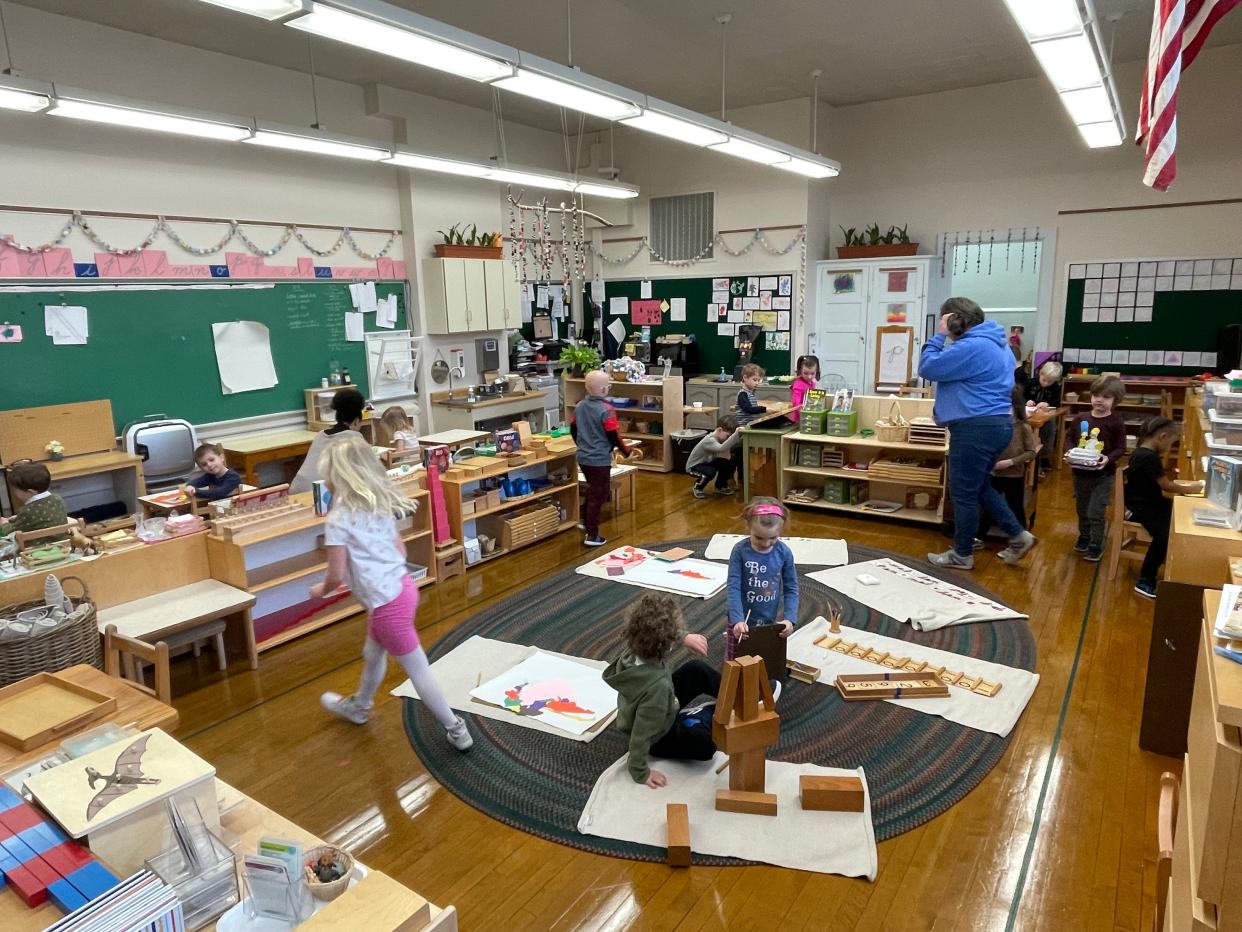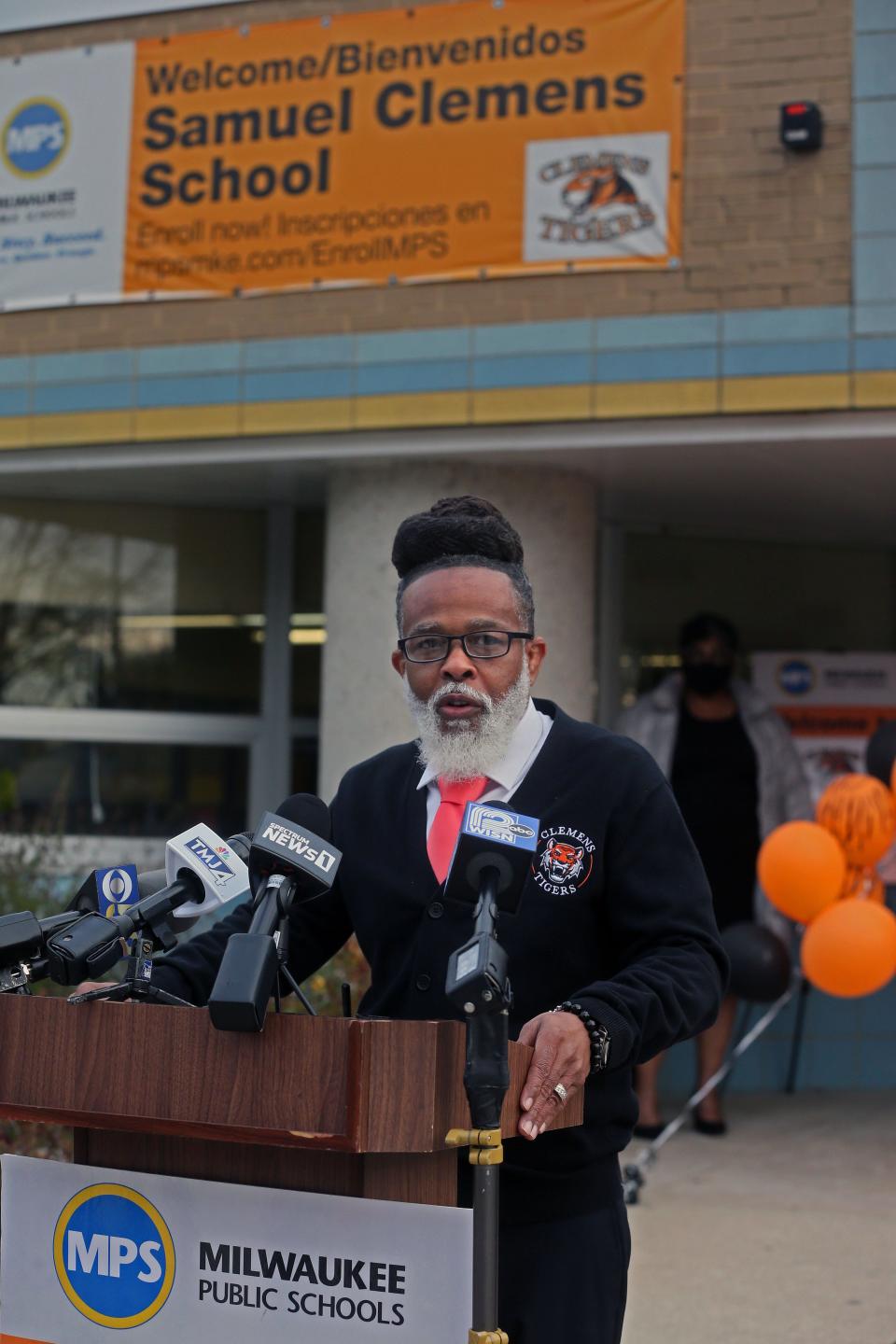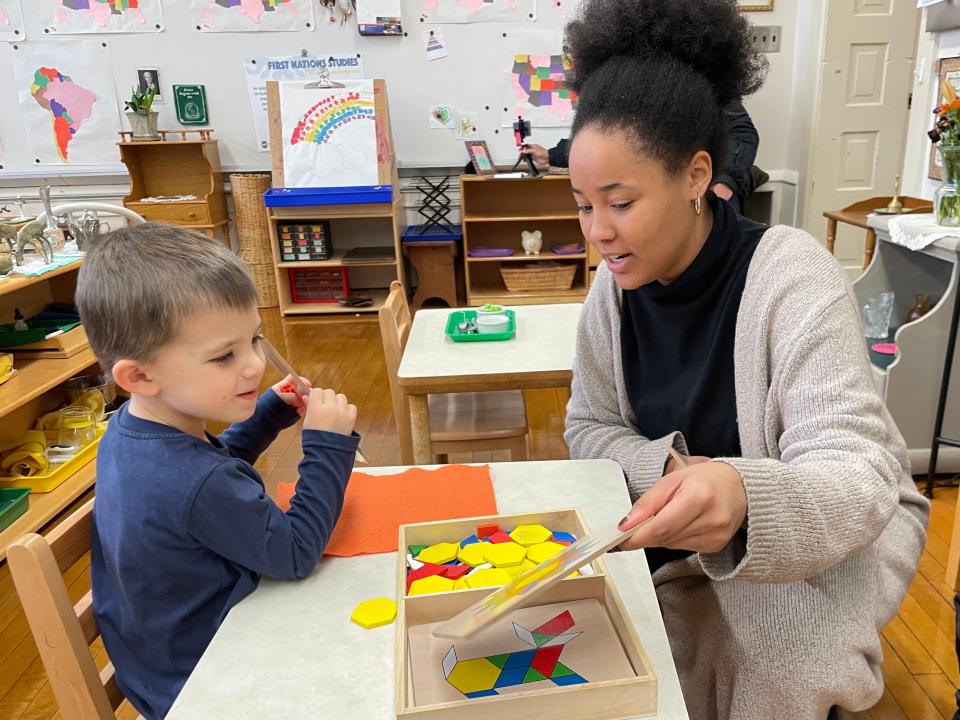What would be lost if MPS referendum fails? Here's how principals are preparing.

For the principals of Milwaukee Public Schools, April 2 will determine whether they move forward with their "yes" budgets or "no" budgets.
If Milwaukeeans vote "yes" on the MPS referendum — raising property taxes to increase funding for MPS — things will mostly look the same.
If they vote "no," hundreds of staff positions could be cut, according to the district, which has argued the referendum is necessary just to keep up with rising costs.
Principals have prepared budgets for both scenarios. Their "no" budgets accomplish a 13% cut. The district's central office has also prepared for a possible 26% cut to centralized services.
It hasn't been easy for voters to discern what exactly is at stake. MPS hasn't provided the "yes" and "no" budgets for all schools, or provided a grand total of how many positions would be cut across the district. District officials say that won't be available until the district's budget process in late April, weeks after the referendum vote.
MPS has projected a budget shortfall of $200 million without the referendum. Martha Kreitzman, the district's chief financial officer, would not say how much money would be saved from the 13% school cuts and 26% central office cut.
"I do know how much it adds up to, but we're still in the budget process, so some things could still change, so I don't know that I really want to make that public at this time," Kreitzman said. "Everything's more in draft stages."
Kreitzman did confirm the cuts add up to less than $200 million. She said that's because there are other "changes to the budget model" that would tackle part of the deficit, such as delaying replacement of textbooks and technology.
More: Should voters support April 2 referendum for MPS? Policy Forum breaks it down.
MPS provided interviews with three principals who shared information about their own "yes" and "no" budgets. Here's what those principals said the referendum vote means for their schools.
At Clemens Elementary, principal would lose leadership team

Garry Lawson, principal at Clemens Elementary on Milwaukee's near north side, is proud of the school's recent growth. About 98% of his students are qualified as economically disadvantaged.
Students at Clemens, like those across the country, aren't performing as well as they were before the pandemic, but they made some gains last year on state standardized tests. In 2022, less than 1% of the school's students scored as proficient in language arts. In 2023, 5% of the school's students were deemed proficient.
Without the referendum, Lawson said, to avoid cutting any teachers, he would have to cut his leadership team: a climate specialist, an achievement gap reduction specialist and a school support teacher.
"To use the sports analogy, as a head football coach, that basically would mean me losing my offensive coordinator, my defensive coordinator and my special teams coach," said Lawson, who has been with the school for seven years.
The climate specialist helps students who have behavioral challenges; the students have restorative circles three times a week, where they learn how to resolve conflicts and act with kindness. The support teacher and achievement gap reduction specialist coach classroom teachers, specifically in math and reading.
If the referendum does pass, Lawson said the school would maintain current staffing with one bump: The school would get a music teacher for one more day per week. Because of the last MPS referendum in 2020, the school currently has a music teacher twice a week, Lawson said.
Lawson said the April referendum is crucial for his school: "This is something our students really need, and we really need to be behind this."
Maryland Montessori could lose five paraprofessionals

Class sizes are already large at Maryland Avenue Montessori School, on the east side of Milwaukee, with about 29-32 kids in each room, said principal Joseph DiCarlo.
Teachers get help from 10 paraprofessionals who float around the school's 17 classrooms. If the referendum fails, DiCarlo said the school would lose half of those paraprofessionals.
Paraprofessionals are educators who don't have to be licensed as teachers. They help students one-on-one or in small groups with classwork and behavior issues. Sometimes they fill in for teachers.
"They're really needed to support the students in the classroom for safety, academic, social and emotional support," DiCarlo said. "And many of the times those paraprofessionals are covering absences in other classrooms."
Maryland teacher Tanja Price has 32 children, ages 3 through 6, in her multi-age classroom. She relies heavily on assistance from a paraprofessional, LouOnnie Pryor.
"When we use our bathroom, we have to travel down the hallway, so if there's an accident, I can't leave children in the classroom by themselves and go attend to the person who needs help," Price said. "I also give small-group instruction, and she is my eyes and ears watching the rest of the classroom."
On Thursday morning, Price's classroom was buzzing with activity as students worked on individual projects, with Price and Pryor each checking on their progress.
"The K-5s, they're pretty independent, they just need like, 'How do you spell elephant?' And I'm like, 'Well, let's sound it out,'" Pryor said. "I'm mostly with the K-3s because they need a lot of reassurance and redirection. And if anyone needs special attention, I would be the one while the teacher is doing the lesson."
Without referendum, Fratney students would get gym and music only once a month
Sara Cruz, principal at La Escuela Fratney, a bilingual school in Riverwest, said if the referendum fails, she plans to cut two classroom teachers and a paraprofessional, and plans to mostly gut the school's gym and music programs. It's a $300,000 cut, she said.
With the loss of two classroom teachers, the class sizes for first and second grades would grow from about 18-20 students to about 30 students in each class, Cruz said.
Students would get gym and music just once a month, Cruz said. Currently, students get those classes each week. She also worries those gym and music teachers, who are currently full time at the school, might choose to leave the district rather than have to split their time between schools.
Cruz said the school would also have to reduce supplies, which she said are already often donated or purchased by teachers on their own dime.
"Teachers would be looking at spending more out of their own pocket or looking for more donations," Cruz said.
If the referendum passes, Cruz said. the school would largely maintain the current staffing levels, with one teaching position being decreased.
"Even with the referendum, there's still not enough resources," Cruz said. "However, without the referendum, it would be devastating."
Contact Rory Linnane at [email protected]. Follow her on X (Twitter) at @RoryLinnane.
This article originally appeared on Milwaukee Journal Sentinel: What happens if MPS referendum fails: Milwaukee principals plan cuts
